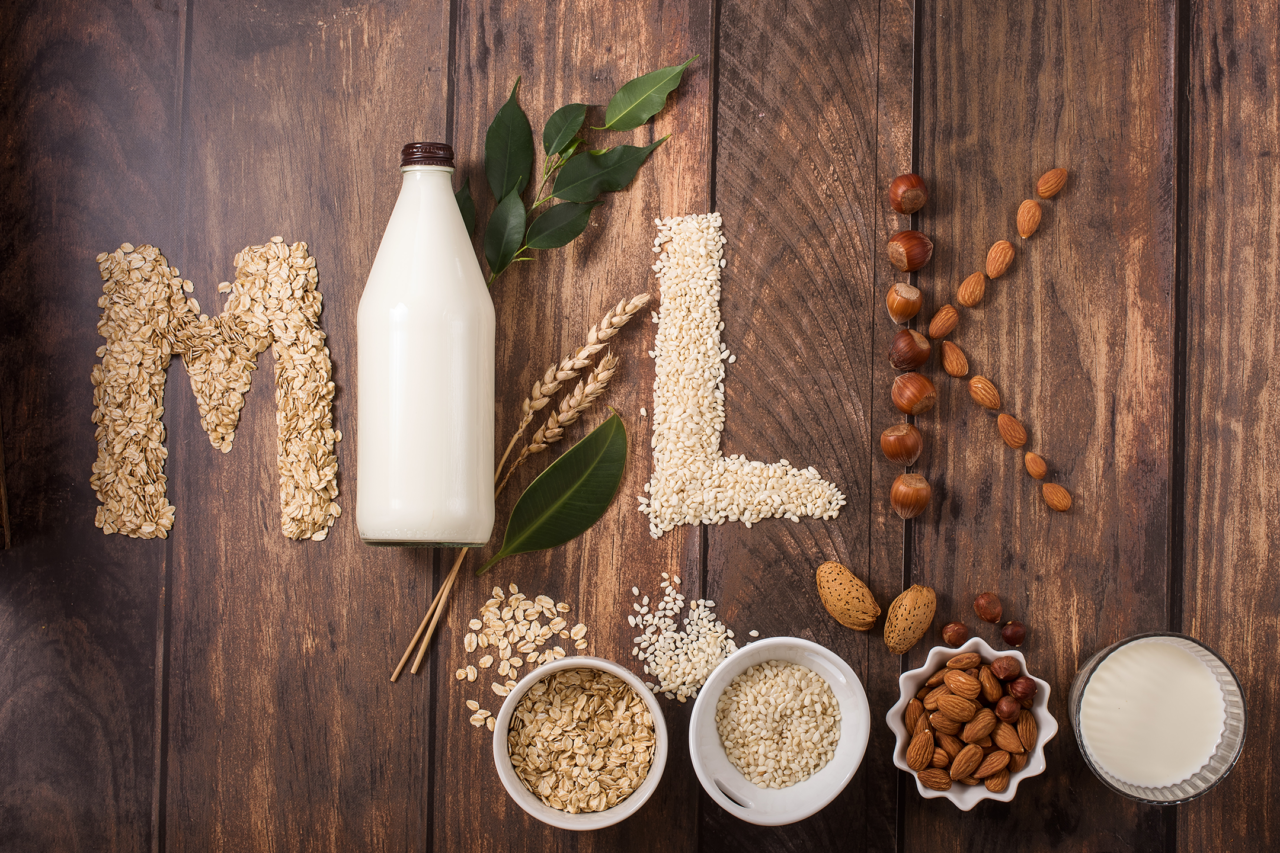 BY Samuel Mathis, MD, Assistant Professor, UTMB
BY Samuel Mathis, MD, Assistant Professor, UTMB
One common question asked during nutritional counseling is about the nutritional value of plant-based milk. These milk substitutes are derived from plants such as oats, coconut, almonds, soy, or even hemp. In the grocery store, these kinds of milk are promoted as being healthier than their dairy counterparts. But what does the research show about these milk products? Are they any healthier than cow or goat milk?
Cow’s milk has been used for centuries and is a staple in many diets around the world. It is high in calcium, iodine, and phosphorus, as well as Vitamins C, B2, B12, and A. The US national dietary guidelines recommend that adults should intake up to 3 glasses of milk per day. However, most Americans are lucky if they even get 1 cup per day. Because of its high calorie and fat content, there have been concerns that cow milk may be unhealthy or increase the risk of cardiovascular disease and all-cause mortality, but a 2016 systematic review and meta-analysis found no correlation between milk consumption and coronary artery disease or all-cause mortality (1). One common side effect of too much dairy is bloating and gas. This is due to the natural degradation of the enzyme lactase as we age.
Given the positive effects and minimal risk of cow milk, why then is there a push for these milk alternatives? What are the health benefits of plant-based milk? A 2022 study compared cow milk to plant-based alternatives. They found that while the nutritional quality and vitamin benefits remained mostly the same, one of the biggest differences between animal and plant-based milk is the type and amount of protein found in this milk (2). Most plant-based milk contains low amounts of digestible proteins. When compared to cow milk, the difference is staggering. Additionally, the vitamin ratios are different for plant-based milk which could lead to vitamin deficiencies in the above name nutrients without appropriate adjustment of one’s diet to compensate (2). Based on this data, the research seems to indicate that plant-based milk is just a less effective version of cow milk. However, many plant-based milks do fortify their product with additional vitamins and minerals to make up for their comparative deficit.
Plant-based milk does not contain the same nutritional benefits as cow milk, but they do have a significantly reduced impact on the environment compared to animal-based milk. Currently, the greatest producer of methane gases and CO2 emissions comes from animals and the associated animal agriculture used to feed these animals. Plant-based milks create less emissions and utilize significantly less land and water than their animal counterparts (3). In this regard, while the nutritional quality is not the same, these milk products are much more sustainable in the long term.
From an additive perspective, many of the plant-based milks will have some additives in their product to help improve the flavor and nutritional value. Unsweetened soy milk is considered the closest product to whole milk, almost all other plant-based milk products contain some form of sugar to improve their taste. These products add anywhere from 4 to 20 grams of sugars such as sucrose or fructose compared to milk’s natural lactose.
Plant-based milk also has significantly less fat than cow-based milk. They also usually have fewer calories per glass. This may benefit certain patients who are working to lose weight. Plant-based milk is also less likely to cause issues with patients who suffer from milk protein allergies or lactose intolerance. There are also some concerns regarding the considerable number of nutritional additives and antibiotics utilized in modern dairy farming. There are studies that indicate the increased use of antibiotics in our food and drink production is impacting current levels of antibiotic resistance. However, the advantage of using these antibiotics still exceeds the potential risk.
While plant-based milk promotes itself as a healthier alternative to cow milk, it is not significantly better in nutritional quality and in many ways is worse than its counterparts. That is not to say that cow’s milk is perfect in the current production model we use, but the health benefits of cow’s milk are still superior overall. My current recommendation when patients ask about the type of milk, they should be drinking is to identify any limitation to cow’s milk. If not, then I recommend continuing with cow’s milk until something better finally hits the supermarket shelves.
References:
- P, Pizot C, Autier P. Daily milk consumption and all-cause mortality, coronary heart disease and stroke: a systematic review and meta-analysis of observational cohort studies. BMC Public Health. 2016 Dec 8;16(1):1236. doi: 10.1186/s12889-016-3889-9. PMID: 27927192; PMCID: PMC5143456.
- Walther B, Guggisberg D, Badertscher R, Egger L, Portmann R, Dubois S, Haldimann M, Kopf-Bolanz K, Rhyn P, Zoller O, Veraguth R, Rezzi S. Comparison of nutritional composition between plant-based drinks and cow’s milk. Front Nutr. 2022 Oct 28;9:988707. doi: 10.3389/fnut.2022.988707. PMID: 36386959; PMCID: PMC9650290.
- Berardy AJ, Rubín-García M, Sabaté J. A Scoping Review of the Environmental Impacts and Nutrient Composition of Plant-Based Milks. Adv Nutr. 2022 Dec 22;13(6):2559-2572. doi: 10.1093/advances/nmac098. PMID: 36083996; PMCID: PMC9930689.


